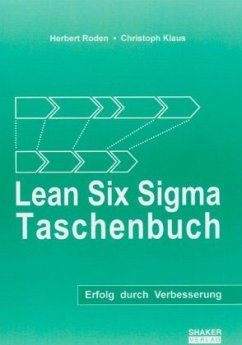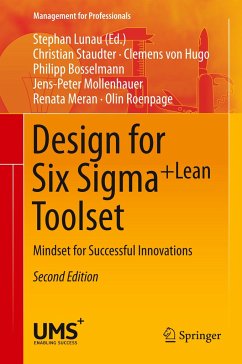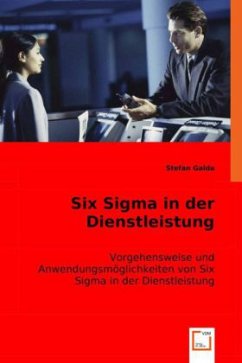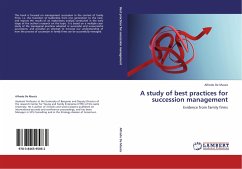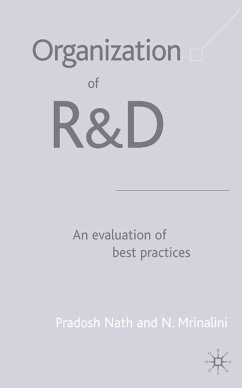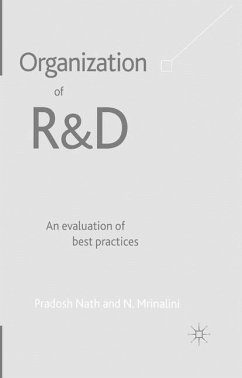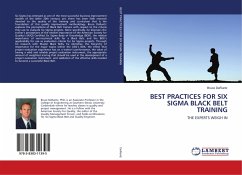
BEST PRACTICES FOR SIX SIGMA BLACK BELT TRAINING
THE EXPERTS WEIGH IN
Versandkostenfrei!
Versandfertig in 6-10 Tagen
32,99 €
inkl. MwSt.

PAYBACK Punkte
16 °P sammeln!
Six Sigma has emerged as one of the most successful business improvement models of the latter 20th century; yet, there has been little research devoted to the quality of the training and curriculum that is the foundation of this quality improvement methodology. Bruce DeRuntz explores the perceptions of Black Belt trainers with respect to the criteria they use to evaluate Six Sigma projects. More specifically, he discovers the trainer's perceptions of the relative importance of the American Society for Quality's (ASQ) Certified Six Sigma Body of Knowledge (BOK), the relative importance of non-t...
Six Sigma has emerged as one of the most successful business improvement models of the latter 20th century; yet, there has been little research devoted to the quality of the training and curriculum that is the foundation of this quality improvement methodology. Bruce DeRuntz explores the perceptions of Black Belt trainers with respect to the criteria they use to evaluate Six Sigma projects. More specifically, he discovers the trainer's perceptions of the relative importance of the American Society for Quality's (ASQ) Certified Six Sigma Body of Knowledge (BOK), the relative importance of non-technical skills for a Black Belt, and the BOK's applicability for use as evaluation criteria for Six Sigma projects. Through his research with Master Black Belts, he identifies; the hierarchy of importance for the major topics within the ASQ's BOK, the effect that project evaluation experience has on a trainer's performance, the value of having a valid and reliable project evaluation instrument, the appropriate amount of weighted scoring that should be used in the development of a project evaluation instrument, and validation of the affective skills needed to become a successful Black Belt.




